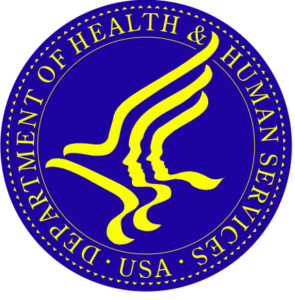- CMS: Medicare and Medicaid Programs: CY 2026 Payment Policies Under the Physician Fee Schedule and Other Changes to Part B Payment and Coverage Policies; Medicare Shared Savings Program Requirements; and Medicare Prescription Drug Inflation Rebate Program
- Public Inspection: CMS: Medicare and Medicaid Programs: CY 2026 Payment Policies under the Physician Fee Schedule and Other Changes to Part B Payment and Coverage Policies; Medicare Shared Savings Program Requirements; and Medicare Prescription Drug Inflation Rebate Program
- CMS: Medicare Program; Implementation of Prior Authorization for Select Services for the Wasteful and Inappropriate Services Reduction (WISeR) Model
- Public Inspection: CMS: Medicare Program: Implementation of Prior Authorization for Select Services for the Wasteful and Inappropriate Services Reduction Model
- CMS: Secretarial Comments on the CBE's (Battelle Memorial Institute) 2024 Activities: Report to Congress and the Secretary of the Department of Health and Human Services
- HHS: Patient Protection and Affordable Care Act: Marketplace Integrity and Affordability
- Public Inspection: HHS: Patient Protection and Affordable Care Act: Marketplace Integrity and Affordability
- Increased Risk of Cyber Threats Against Healthcare and Public Health Sector
- HRSA Announces Action to Lower Out-of-Pocket Costs for Life-Saving Medications at Health Centers Nationwide
- Announcing the 2030 Census Disclosure Avoidance Research Program
- Eight Hospitals Selected for First Cohort of Rural Hospital Stabilization Program
- CMS: Medicare Program; Hospital Inpatient Prospective Payment Systems for Acute Care Hospitals and the Long-Term Care Hospital Prospective Payment System and Policy Changes and Fiscal Year 2026 Rates; Requirements for Quality Programs; and Other Policy Changes; Correction
- CMS: Medicare Program; Hospital Inpatient Prospective Payment Systems for Acute Care Hospitals and the Long-Term Care Hospital Prospective Payment System and Policy Changes and Fiscal Year 2026 Rates; Requirements for Quality Programs; and Other Policy Changes; Correction
- CMS: Medicare and Medicaid Programs; Contract Year 2026 Policy and Technical Changes to the Medicare Advantage Program, Medicare Prescription Drug Benefit Program, Medicare Cost Plan Program, and Programs of All-Inclusive Care for the Elderly; Correction
- CMS: Medicare and Medicaid Programs; Contract Year 2026 Policy and Technical Changes to the Medicare Advantage Program, Medicare Prescription Drug Benefit Program, Medicare Cost Plan Program, and Programs of All-Inclusive Care for the Elderly; Correction
HRSA Modifies Definition of Rural for FORHP Grants

Comment by May 28. On April 26th, the Federal Office of Rural Health Policy (FORHP) announced a proposed modification to the definition of ‘rural’ used to designate eligible areas for rural health grants. Because access to needed health care is likely to be reduced when roads are most difficult to traverse, FORHP proposes to modify the definition of rural areas by integrating the new Road Ruggedness Scale (RRS) released in 2023 by the Economic Research Service (ERS) of the U.S. Department of Agriculture. The proposed modifications are based on a data-driven methodology to identify areas with difficult mountainous terrain. All areas included in the current definition of rural would remain included.
Overdose Deaths Are in Decline

Last week, the Centers for Disease Control and Prevention released provisional data from their National Center for Health Statistics (NCHS) indicating an estimated 107,543 drug overdose deaths in the United States in 2023 – a decrease of 3 percent from the 111,029 deaths estimated in 2022. This is the first annual decrease in drug overdose deaths since 2018. Several states across the nation saw decreases; Nebraska, Kansas, Indiana, and Maine experienced declines of 15 percent or more. Still, some states saw increases. Alaska, Washington, and Oregon stood out with notable increases of at least 27% compared to the same period in 2022. Various factors make a difference in provisional counts versus final counts, such as records indicating “pending investigation.” The data are based on death records NCHS receives each month from state vital registration offices with no distinction between urban and rural.
Developing Occupational Therapy and Telehealth Toolkit

Occupational Therapy and Telehealth Toolkit. Created by the Greater Plains Telehealth Resource and Assistance Center, the toolkit gives information on basics and best practices for providing occupational therapy via telehealth.
HHS Releases Nondiscrimination in Health Program and Activities Final Rule

Effective May 6. The U.S. Department of Health and Human Services (HHS) Office of Civil Rights issued a final rule under Section 1557 of the Affordable Care Act advancing protections against discrimination in health care. At a minimum, the rule will restore protections against discrimination on the basis of race, color, national origin, sex, age, and disability. It will also reduce language access barriers, expand physical and digital accessibility, and address bias in health technology. With the restoration of the rule, HHS aims to increase meaningful access to health care for communities across the United States.
Pennsylvania State Health Assessment Now Available
The 2023 Pennsylvania State Health Assessment update is now published and available on the Department of Health webpage. The State of Our Health: A Statewide Health Assessment of Pennsylvania identifies the populations most impaced by various health risks and outcomes and the possible causes for those disparate impacts. The assessment was developed through collection and analysis of qualitative and quantitative data with engagement of 82 organizations, including PACHC, who participate in the Healthy Pennsylvania Partnership.
KFF Launches Medicaid Enrollment and Unwinding Tracker

The Medicaid Enrollment and Unwinding Tracker presents the most recent data on monthly Medicaid enrollment, renewals, disenrollments, and other key indicators reported by states during the unwinding of the Medicaid continuous enrollment provision. The unwinding data are pulled from state websites, where available, and from the Centers for Medicare & Medicaid Services (CMS).
To view data for specific states, click on the State Enrollment and Unwinding Data tab.
New Resource: E-Cigarette Use, Vaping, and Oral Health

The CareQuest Institute for Oral Health released a new visual report, “Electronic Cigarette Use, Vaping, and Oral Health.” The report explains how individuals who use e-cigarettes are significantly more likely to report having periodontal (gum) disease compared to those who do not smoke or use other nicotine products. E-cigarette use is linked with signs of periodontal disease such as increased plaque, deeper periodontal pockets around the teeth, and bone loss.
New from the CDC: Rural Cardiovascular Disease Mortality Data

The Centers for Disease Control and Prevention (CDC) has shared a new resource from the Division for Heart Disease and Stroke Prevention. The Local Trends in Heart Disease and Stroke Mortality report provides detailed maps and graphics documenting county-level heart disease and stroke mortality and trends within each state. The report includes data for most counties in all states, including the most rural. This report can be used to enhance and inform cardiovascular disease prevention and treatment programs and policies.
For each state, the Local Trends in Heart Disease and Stroke Mortality report includes:
- County-level maps of death rates for coronary heart disease (CHD) and stroke
- County-level maps of trends in CHD and stroke death rates
- Figures depicting comparisons of county-level death rates and historical trends for CHD & stroke
- All graphics are presented by age group (ages 35-64; ages 65 and older)
- A CSV file containing all data used to make the report.
The Local Trends in Heart Disease and Stroke Mortality report for each state, along with the underlying dataset, is available by request. To get the report, please contact Adam Vaughan at avaughan@cdc.gov. Additionally, the data are available on chronicdata.cdc.gov.
